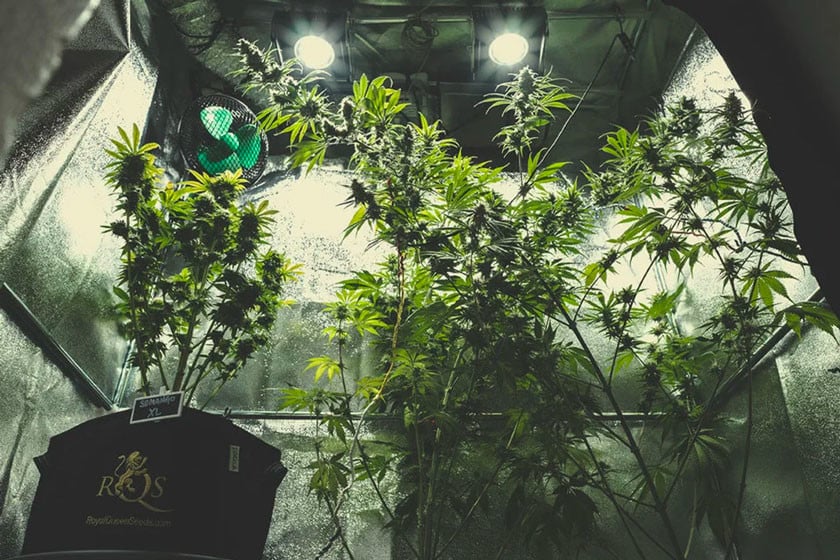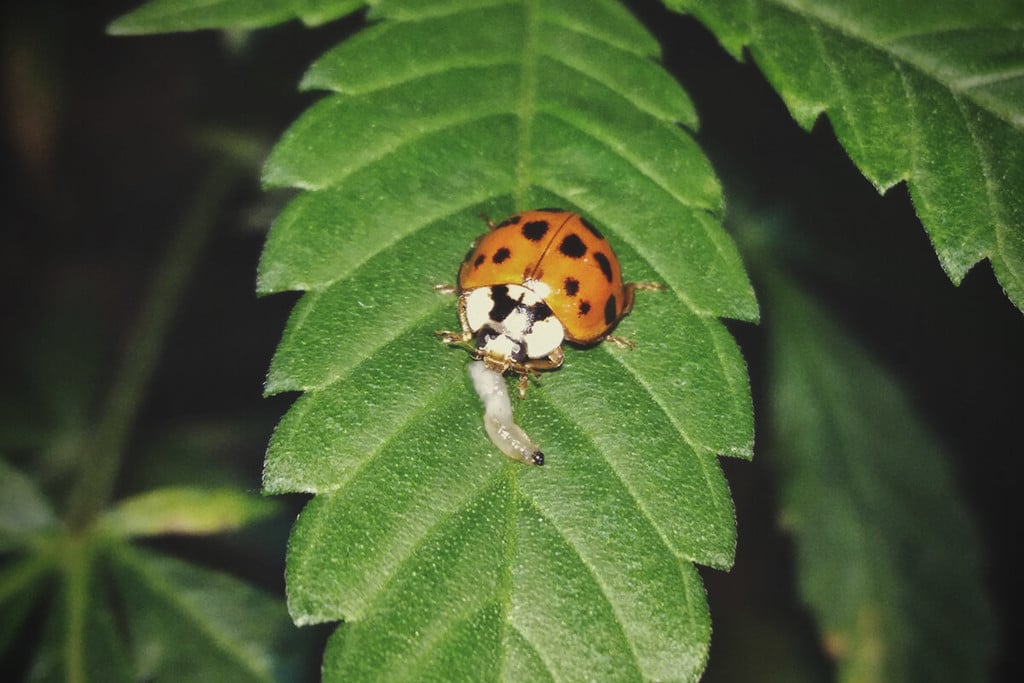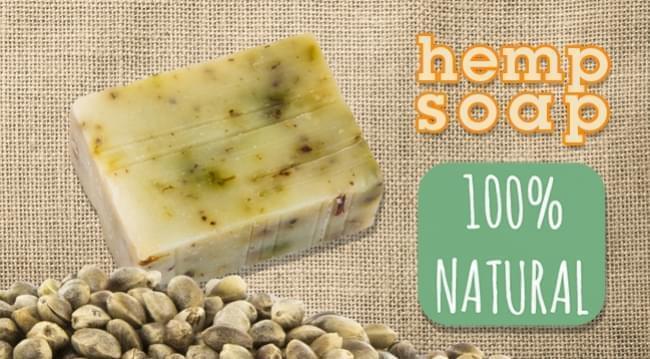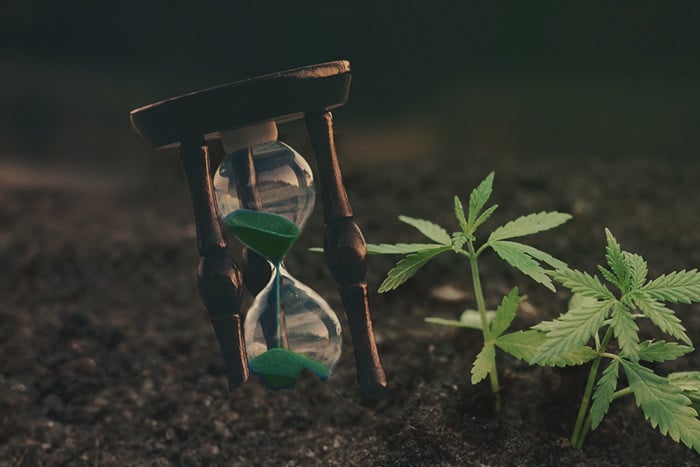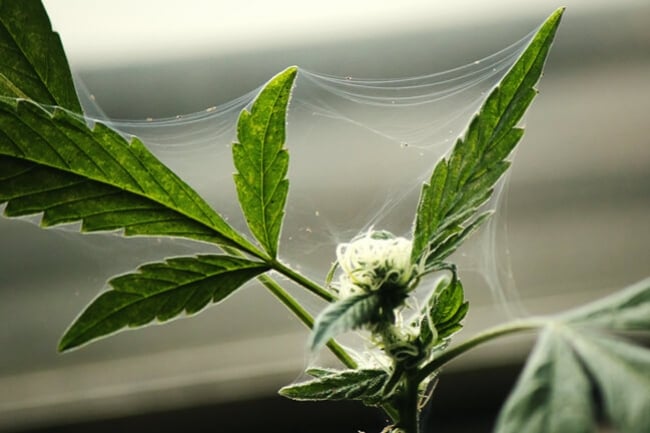.
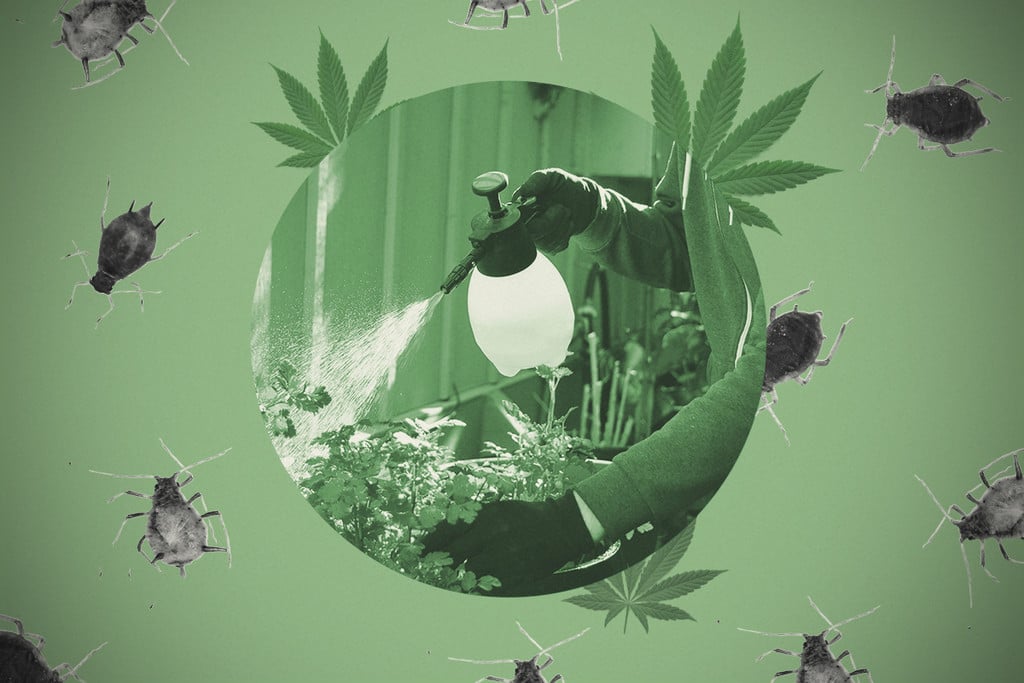
How to Make Insecticidal Soap for Cannabis
Cannabis growers face an array of challenges during the growing cycle. Among these, pests cause some of the worst damage to plants and yields. However, you don't have to resort to using harsh chemicals to protect your weed crop. Instead, try using this natural insecticidal soap to get the job done. Learn how to make and use it below.
Who doesn’t get joy from growing cannabis outdoors? Not much compares to walking through the garden, with the sun on your skin and the soil between your toes, while inspecting your polyculture of cannabis strains, companion plants, and delicious vegetables. However, things aren’t always this tranquil. Various challenges have the potential to skewer this peace and throw some stress into the equation—namely pests!
A whole host of insects have an appetite for cannabis, and they aren’t exclusive to outdoor growing operations. Aphids, whiteflies, and mealybugs are but a few of the species that seek to devour the sap and tissues of your plants. Left unchecked, these tiny adversaries can cause severe damage—enough to reduce yields at best and destroy a plant at worst. Luckily, there are some cheap and easy ways to deal with such invaders, including whipping up a batch of insecticidal soap. Learn more about this Earth-friendly remedy below, and how to make it.
Contents:
What Is Insecticidal Soap?
Bactericidal. Fungicidal. Virucidal. As you can probably tell, the suffix “cidal” indicates killing. The soap you use after each toilet session most likely contains bactericidal and virucidal agents. So, insecticidal soap refers to a concoction designed to eliminate certain pests wreaking havoc in the garden or grow room.
After the initial shock of an infestation, many growers are tempted to opt for harsh and toxic chemicals to eliminate their many-legged foe. It might seem like a good idea at first, but plants absorb chemical insecticides. Apply them too close to the flowering stage, and you risk contaminating the fruits of your labour. Moreover, such chemicals might also pose a threat to human health, and inevitably end up seeping into waterways and the local environment. Insecticidal soap serves as a cheap, easy, and more environmentally friendly alternative (provided you use the correct ingredients).
Natural Pesticides: How Does Insecticidal Soap Work?
Killing insects involves—you guessed it—killing. Far from soothing them with painkillers and giving them the chance to utter their last words, the application of insecticidal soap catalyses a rather brutal process. But you have to decide what you’d rather have survive: plants or pests? If you opt to go down the route of pest control, it’ll help to know how exactly insecticidal soap works. These formulas work by two means: suffocation and dehydration.
First, they interrupt oxygen uptake in small, soft-bodied insects by disrupting cell membranes. These structures envelop cells and allow for the controlled movement of key compounds; without them intact, cells quickly perish.
Second, insecticidal soap targets the waxy coating that insects produce. This substance emerges from the cuticle—an outer layer that serves as protection and an attachment point for muscles. The waxy excretion works by locking in moisture and keeping insects hydrated. Once destroyed, pests quickly lose critical moisture.
Which Pests Does Insecticidal Soap Protect Against?
Insecticidal soap protects against several of the most common cannabis pests, including those mentioned below:
| Aphids | These critters are quick to multiply, and use their mouthparts to puncture plants and feed on sap. |
| Mealybugs | These insects also have a taste for sap, and their feeding leads to plants wilting, curling, and the premature dropping of leaves. |
| Thrips | Equipped with wings and sharp mouthparts, thrips like to feed on new developing tissues, leading to distorted growth. |
| Spider mites | Leaving cobweb-like strands in their wake, spider mites damage plant tissues until leaves turn yellow, wilt, and drop to the ground. |
| Aphids |
| These critters are quick to multiply, and use their mouthparts to puncture plants and feed on sap. |
| Mealybugs |
| These insects also have a taste for sap, and their feeding leads to plants wilting, curling, and the premature dropping of leaves. |
| Thrips |
| Equipped with wings and sharp mouthparts, thrips like to feed on new developing tissues, leading to distorted growth. |
| Spider mites |
| Leaving cobweb-like strands in their wake, spider mites damage plant tissues until leaves turn yellow, wilt, and drop to the ground. |
Is Insecticidal Soap Safe for Your Garden and the Environment?
It sounds safer than insecticides, but does pouring soap all over your plants hurt the environment, too? That’s a good question. Some soaps on the shelves contain harsh chemicals of non-natural origins that will indeed harm the environment to some degree. But making insecticidal soap doesn’t involve using any old product. Gardeners are encouraged to use natural and organic soaps that contain ingredients that quickly break down and assimilate into the soil food web, feeding the microbes that live there.
Products such as Castile soap (thought to have originated in the Castile region of Spain) contain safe and natural ingredients such as aloe vera, shea butter, essential oils, salt, and vegetable oils. If you’re short on time, there are a bunch of products out there to choose from. Alternatively, check out our recipe below to make your own.
Insecticidal Soap: How To Make It
Whether you’ve spotted an insect infestation around your weed plants or you’d rather prepare yourself against the inevitable, this insecticidal soap “recipe” serves as a cheap and easy way to deal with weed-munching insects.
Equipment• 5l plastic bottle • Stirring stick • Spray bottle |
Ingredients• 2½ tbsp. pure liquid soap (without fragrances or artificial colours) • 2½ tbsp. vegetable oil • 4l water |
Directions
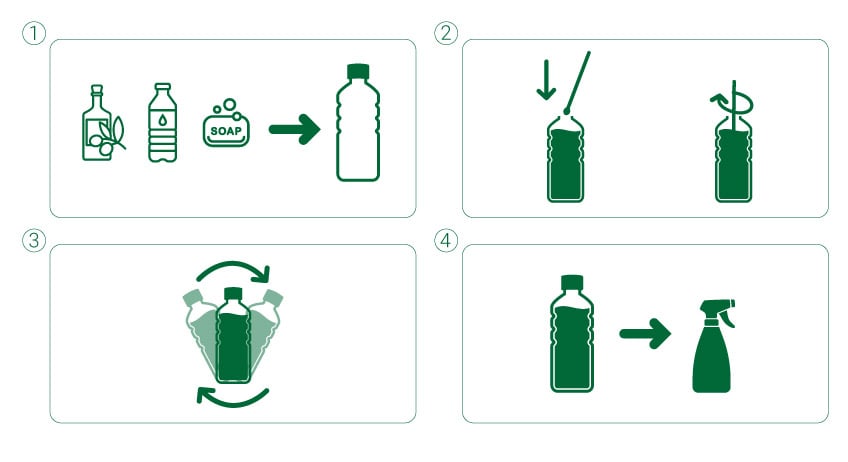
1. Add the soap, vegetable oil, and water to the 5l bottle.

2. Use the stirring stick to mix the solution thoroughly.

3. Attach the lid, and shake the bottle vigorously.

4. Pour the contents into your mixing bottle, reattach the lid, and store the excess in a cool, dark place.

How to Use Insecticidal Soap
Are you ready, Storm Trooper? Now that you’re armed to the teeth, it’s time to holster your spray bottle and strut into your grown room or garden like an assault detachment on a mission. The rules are simple: you must apply your weapon directly to pests. Insecticidal soap has a short window of efficacy; any left on the leaves will just dry up. Keep your eyes peeled, and pull the trigger whenever you come across squadrons of aphids, mealybugs, thrips, and spider mites.
Insecticidal Soap: You’re Getting Greener
At RQS, we applaud weed growers for stepping over to the green side of the cultivation spectrum. We understand that, in their desperation, some growers elect to use harsh pesticides. However, these chemicals only pose a problem to plants, people, and the environment. We’ve made it our mission to offer growers effective alternatives, and we’re proud of you for choosing Earth-friendly solutions to deal with gardening problems. We salute you!


























